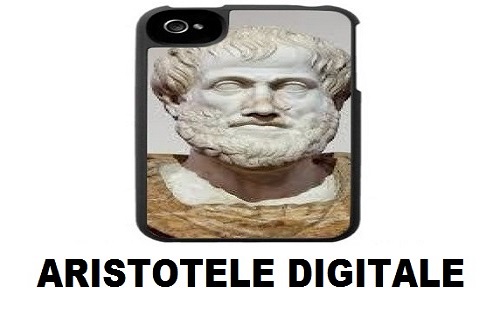Paolo Zanenga, with whom I have been thinking about digital for years, points me to a passage of the 8thsong of the Odyssey, where Alcinoo asks for Ulysses’ name, homeland, city and tribe in order to bring him home. So that, Alcinoo describes his ships:
But what helmsmen don’t have Phaeacians’ ships,
have no rudder, like the ships of others: they themselves
the ships understand pilot’s mind and the will:
of all the people who know the fertile fields
and cities: they cross, shrouded in mist and chalices,
quickly, the vast sinkhole of the sea; and fear
there is none, that may have to suffer, that they should be lost.
It might be inferred that those ships were georeferenced and governed by a kind of artificial intelligence. Someone would be tempted to imagine (and I wouldn’t be the only one) that in ancient times there was a very advanced technological culture which has been lost for whatever hidden reasons. Other suggestions emerge from the eighth song of the Odyssey: the robot dogs defend the palace of Alcinoo. A similar imagine can be found in the 18th song of the Iliad where cyborg handmaids accompany Efesto, the grim God of fire, metallurgy, engineering and sculpture
similar throughout to live young girls
……..
…….
and they have strength and favella, and in beautiful jobs
are instructed by the immortal Gods.
I’m not really thinking that “the pyramids have been built by the aliens, and so on”. So how do I handle this? Repeating here, as I repeat in my gleaming column, that digital is neither a technical issue nor a digital one (there is nothing that can justify itself, not even nothing), but gnoseological. In better words, it concerns how the world is configured in relation to our (repeat our) senses, how it is processed conceptually, without resolving itself in mere empiric, and our ability or possibility to modify the existing: the principle of necessity (in all its modalities). The technique!
Now we have basically (sic!) two alternatives:
- to believe that we are real and that our ability to modify the reality (because it touches us; in all senses) is due to homoiotic correspondence between us and the world (we know why our capacity for understanding adapts to the world), to the point of postulating that our empirical ability leads to absolute knowledge called science, or
- let’s try to think and make that our own knowledge produces (always in the game subject/object/way) worlds.
Very shortly: knowledge produces worlds (in the plural) and does not represent the world. This is what digital has been telling us since the world began and, even more so, since it presented itself in all its Power AiT.








